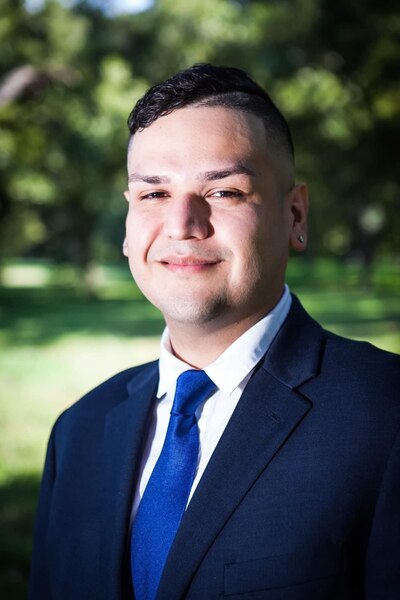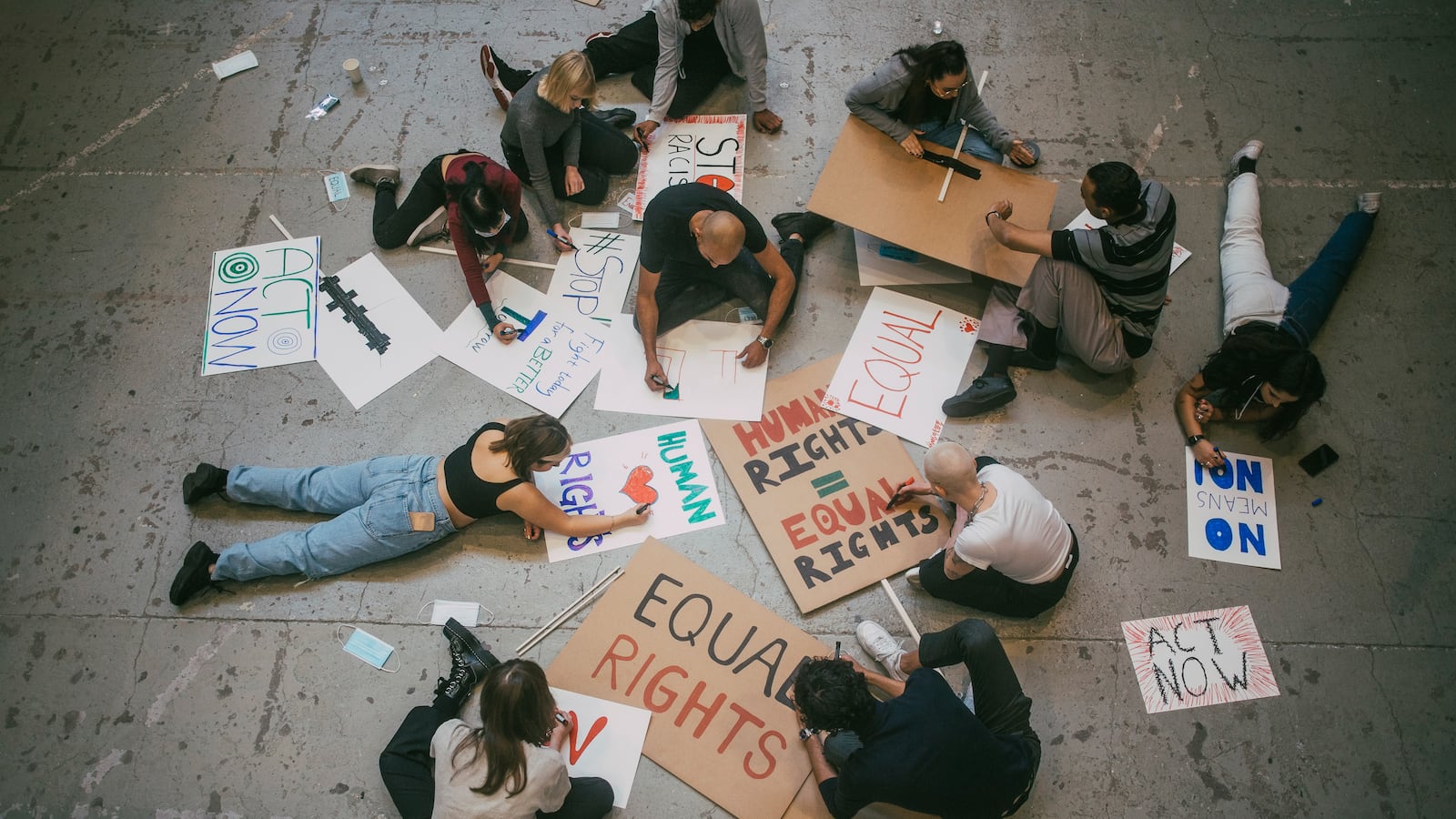“Duermete. Duermete, Juan Guillermo,” my mom said, urging me, in our native Spanish, to go to sleep. I am 6, and my mom is taking me to the United States for the first time. I am an undocumented immigrant and have no idea what’s happening. My mom says that I will need to pretend to be asleep the entire time as a stranger named Connie will be carrying me across the border. She says that I am not supposed to wake up even if immigration officers try to wake me up. And that my name is now Bobby. I close my eyes, and I feel confused. I am afraid I am going to get in trouble. I am worried that I will not see my parents again. I am scared to leave my family in Mexico behind.

Now as an adult, I realize I began my American dream in darkness with my voice silenced. My identity up until that point was worthless in others’ eyes. And this, unfortunately, is still the reality for many BIPOC Americans. They may seek to assimilate into predominantly white environments in order to gain acceptance, validation. In order to survive. But this reality is not acceptable to me, as a school leader and an immigrant, which is why the school that I lead, KIPP Austin College Prep, has declared itself an overtly anti-racist “campus of social justice.”
It means our students don’t have to think twice about whether their identities are good enough. It means they know they are loved, and that we believe in them. It means within our walls, they won’t experience the trauma of white supremacy. It means educators, staff, students, and families learn to recognize and champion each other’s identities.
It means a rigorous civics education that will teach them how to be social activists that question, interrupt, and disrupt policies, practices, and laws that oppress BIPOC.
How can other schools embark on this work? Our school’s three-pronged approach to social justice work during a year of disruption, despair, protest, and progress may be instructive.
The first two aspects of this work — professional development to show educators what it means to teach in an anti-racist context and a BIPOC-led Diversity, Equity, and Inclusion task force — are key. Our monthly professional development sessions have centered on such topics as three types of racism (interpersonal, institutional, and internalized racism), the dangers of assimilation, white savior complex, white supremacy culture, and LGBTQ+ 101. Our Diversity, Equity, and Inclusion, or DEI, task force, meanwhile, is made up of students, staff, and parents — with representatives from those who specialize in special education, mental health, and Response to Intervention. Its members make sure our school’s systems and policies are equitable, and they can recommend changes to how we do things.
The third prong of our anti-racism work is embedded in the student experience almost every day. At our middle school, we redesigned the schedule to allow for 30 minutes of DEI learning for all fifth through eighth grade students four times a week. It’s there that students begin learning about identity, social justice, racism, gender, and sexuality. Each lesson includes various forms of media for students to engage with, critical classroom discussions, and writing assignments. Prompts include questions such as “How do you perform differently around people who identify like you?” and “Where do stereotypes we have about gender and sexuality come from, and how do we approach them?”
Each topic culminates with a final project (called a mini-lab) where students can apply what they learned. In one such mini-lab, students explored their identities — completing an identity starburst chart. Then they used this information to create identity fingerprint projects; you can learn more about these projects here. A second mini-lab had students and teachers express their ideas about racial equality through an artistic creation of their choice: performance poetry, dance, music, or visual art. You can access their presentations here. Projects ranged from original “Black Trans Lives Matter” posters to an interpretive dance to John Mayer’s “Waiting on the World to Change” to student poetry with lines such as “It is my hope that in due time/this malice of hate will be defeated./If this hope does come to fruition we still have a ladder to climb/may our people finally be treated.../ as equals.”
Among students and educators alike, the response to this rigorous, engaging social justice education has been overwhelmingly positive. As one of the art teachers at our school put it: “I have seen a tremendous improvement in idea development, confidence, and freedom of expression in my students.”
Still, not everyone is on board with this brand of social justice work. Just last month, the Texas governor signed a bill that will limit how teachers can talk about racism, encourages “deference” to multiple perspectives on current events, and restricts the use of the 1619 Project, a New York Times Magazine series about how slavery has shaped the U.S.
I see the social justice work we are doing at as critical, not controversial. These labs must be mandatory for all teachers whatever their personal value systems are. Only then will students and their families be free from the racial injustice that they have long had to endure in this country.
If teachers resist these efforts, then they are sitting in their privilege. I make it very clear to our new teammates and our current staff at KIPP Austin College Prep that we are a school of social justice focused on creating an environment that is inclusive. The team must ask themselves whether they see their own mission aligned with our school’s vision because our work incorporates the topics of social justice and DEI on a daily basis.
I am now 32 years old, but I still think back to that moment I walked across the U.S.-Mexico border as Bobby. Even though I entered the United States as someone I was not, I wish that I would have had teachers and a principal tell me from the moment that I walked through the school doors that my identity and my voice were valued. However, I did not. That is why I’m determined to create for my students what I never had. I want them to know that their voices are strong and that their identities are beautiful — and I want our school to reinforce that message every day.
Juan Juárez is currently in his 11th year with KIPP Texas Public Schools and the principal of KIPP Austin College Prep. Juárez is in his fourth and final year as a doctoral student in educational leadership at the University of Texas at San Antonio. His research focuses on the experiences of gay Latino educators in heteronormative school climates. Outside of school, Juárez loves listening to pop music, taking spin classes at SoulCycle, watching movies every weekend, and spending time with his dogs.



